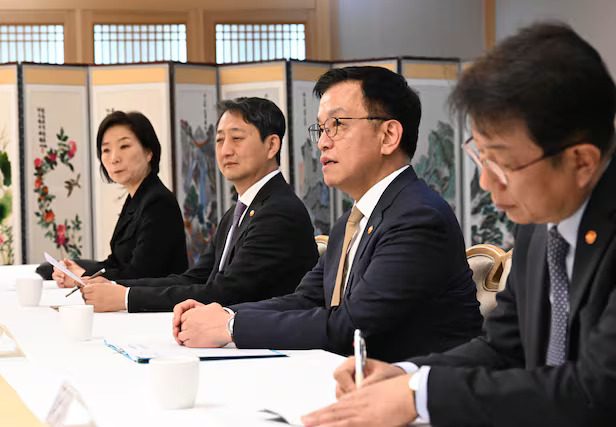🎧 Listen to This Article
SEOUL – In the aftermath of former President Yoon Suk-yeol’s impeachment, South Korea’s government has moved swiftly to implement urgent economic stability measures. With the country facing challenges such as delayed domestic recovery, U.S.-China trade tensions, and wildfire damages, Deputy Prime Minister Choi Sang-mok and other key ministers have vowed to work as a unified team to stabilize the economy in the short term. This proactive response is set to tackle a range of issues from industrial support to consumer price stabilization.
Context & Background – Why is this happening?
On April 4, 2025, following the Constitutional Court’s ruling on Yoon’s impeachment, South Korea’s government held an emergency meeting to strategize a comprehensive economic response. While there were no immediate signs of economic instability following the ruling, the country’s economy is facing increased pressure from several fronts.
The delayed recovery in domestic demand, damage from recent wildfires, and ongoing U.S.-China trade friction have created significant economic strains. As a result, South Korea’s government is taking swift, multi-pronged actions to address these issues and restore confidence in the economy.
Impact on Key Sectors – Focused Industry Responses
Key sectors like trade, industry, and agriculture will see targeted intervention. The government has outlined a series of measures, including:
- Trade and Industry: To mitigate the impact of U.S. mutual tariff impositions, the government plans to set up an Economic Security Strategy Task Force to devise strategies for damage control. Key industries such as automotive, small businesses expanding internationally, and companies facing difficulties will receive tailored support to strengthen their resilience.
- Living Costs: The government has committed to freezing public prices for electricity, gas, and railways through the first half of 2025. Additionally, increased scrutiny on food price hikes and discount support for agricultural, livestock, and fisheries products are being introduced to stabilize consumer spending.
- Real Estate and Housing: On the housing front, the government intends to continue with housing supply plans without delays. Monitoring of land transactions and project financing (PF) will be stepped up to mitigate concerns over potential deficits in the real estate sector.
Strategic Economic Measures
In a bid to boost South Korea’s long-term economic prospects, the government has unveiled several strategic measures, including:
- Capital Market Modernization: The government aims to modernize capital markets through tax incentives to encourage value-ups, the introduction of domestic investment-type Individual Savings Accounts (ISA), and enhanced shareholder rights protections.
- National Pension Reform: Talks are set to accelerate regarding structural reforms to South Korea’s National Pension Service (NPS), which has become a critical area of focus as the population ages.
Urgency of a Supplementary Budget
One of the most urgent priorities for the government is securing a 10 trillion won supplementary budget to be passed by the National Assembly before the end of April. This budget will address critical needs such as:
- Mitigating trade risks and U.S.-China tensions
- Enhancing South Korea’s artificial intelligence (AI) competitiveness
- Supporting small businesses and low-income households
The government has emphasized the need for close collaboration with the National Assembly to ensure the budget is approved quickly, enabling swift implementation of these key economic stabilizing measures.
Expert Reactions:
Economic experts have generally welcomed the government’s prompt actions but remain cautious about the long-term sustainability of these measures. “The economy is at a critical juncture, and while these short-term steps are necessary, they must be complemented by structural reforms to ensure lasting stability,” said economist Lee Ji-hoon.
Additionally, some analysts warn that the country’s heavy reliance on global trade and external factors—such as U.S.-China relations—means that South Korea’s economic stability will remain vulnerable to international shifts.
For further details, clarification, contributions, or any concerns regarding this article, please contact us at editorial@tax.news. We value your feedback and are committed to providing accurate and timely information. Please note that our privacy policy will handle all inquiries



